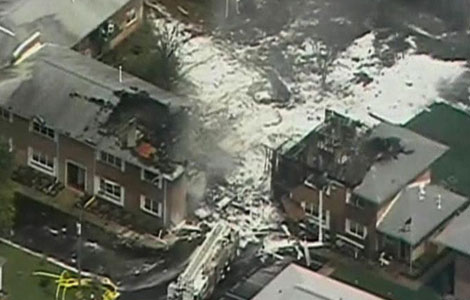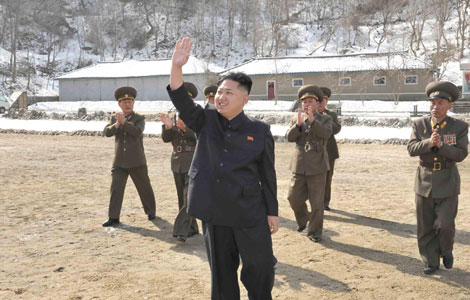 |
|
|
|
|||||||||||
China is updating its nuclear emergency plan and building its capability to handle nuclear emergencies amid new challenges brought by the industry's quick development.
A two-day meeting of the national nuclear emergency coordination committee that started on Friday in Beijing discussed the revision of China's nuclear emergency plan, as well as the 12th Five-Year Plan (2011-15) for nuclear emergencies. An expert panel set up on Friday was expected to provide professional advice to the committee.
Meanwhile, the committee will expand to involve more government departments and provinces, said Wang Yiren, deputy head of the State Administration of Science, Technology and Industry for National Defense.
The number of provinces that have nuclear emergency plans will increase from 12 to 16, he said.
Efforts will also be made to draft more laws governing nuclear emergencies, build capability to handle a nuclear accident, and carry out more nuclear emergency drills, he said.
The meeting came after President Hu Jintao told the 2012 Seoul Nuclear Security Summit last week that nuclear security and energy could work in tandem by using a "scientific and sensible" approach.
As China prefers nuclear energy to meet its surging demand as the economy undergoes rapid expansion, efforts should be made to "face up to associated risks and make sure that nuclear energy is safer and more reliable", Hu cautioned.
China and other countries were alerted by the Fukushima crisis last year, which still has a lingering impact.
Tokyo Electric Power Co said on Friday that about 12 tons of radioactive water have leaked at Japan's Fukushima Daiichi nuclear power plant.
The leak was found early Thursday coming from a pipe attached to a temporary decontamination system, and the water had already gone through some of the cleansing process.
The operator of the crippled nuclear facility said some of the polluted water might have flowed into the Pacific Ocean.
Wang said that China took immediate action after the Fukushima crisis. The committee organized inspections of all civil and military nuclear facilities, concluding that "overall nuclear safety in China is controllable".
But experts believed safety hazards still remain, as China is often hit by natural disasters and nuclear power is developing quickly.
According to the National Energy Administration, China has 15 nuclear reactors in operation, mostly in Jiangsu, Zhejiang and Guangdong provinces. At present 26 more nuclear reactors are under construction. By 2015, China will have 41 nuclear reactors.
Xia Yihua, a radiation expert at the China Institute of Atomic Energy, believed that despite the overall safe situation, there is much more that can be improved, such as people's safety consciousness and the government's capital input into capacity building.
"The country's nuclear emergency plan can also be improved technically, such as how to deal with extremely serious accidents, which is a shared problem facing all countries with nuclear facilities," he said.
Chen Weiyang with the Headquarters of the General Staff of the People's Liberation Army suggested the country should train more professionals to deal with nuclear emergencies.
He said the country also needed to build up a special team that can monitor nuclear radiation in the air.
"Nuclear accidents usually influence a wide area. Ground-based supervision takes much longer to determine the overall impact. In emergencies, we'll need a team that can quickly find out the overall impact," he said.

|

|

|

|

|

|